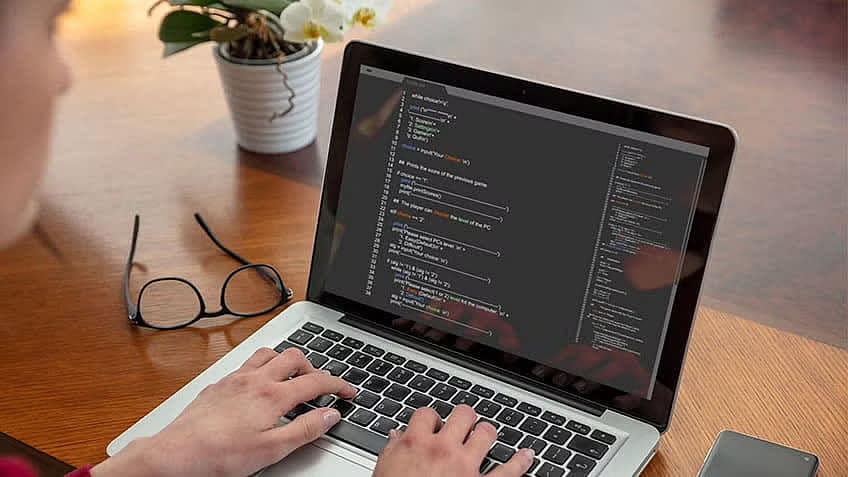It’s been true for years and stays so lately that just about each and every vital tool gadget you construct with Object Oriented Programming (OOP) makes use of inheritance for code reuse. Very similar to the inheritance trend, the delegation trend in object-oriented programming lets in code reuse. On this educational on Kotlin delegation, you’ll be informed other subjects of Delegation in Kotlin with examples.
What Is Kotlin Delegation?
Creating a composition as robust for reuse as inheritance is conceivable with Delegation. Two items below Delegation care for a request: a receiving object delegates duties to its delegate, who then handles the request.
Delegation governs the switch of authority or energy from one object to some other. They’re acceptable to each static and dynamic relationships between categories and purposes as soon as they have got been applied.
Now, take a look at its syntax:
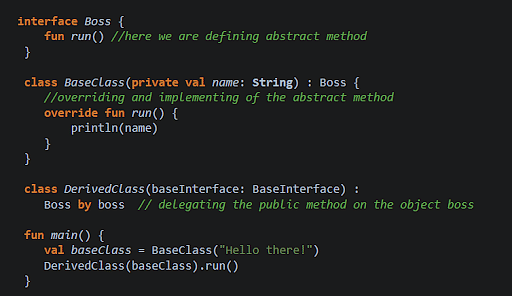
Delegation tactics permit for converting how inheritance is applied in categories and purposes, and object-oriented programming languages naturally fortify this with out the will for boilerplate code. The via key phrase in Kotlin is used to succeed in this.
Within the above instance, Boss is the identify of the interfaces, and run() is its summary serve as. The via key phrase is used from DerivedClass to get admission to the run() serve as, which is applied in BaseClass.
Now, you’ll know how Kotlin Delegation works in internet building.
How Does Delegation Paintings in Kotlin?
Like Java and different languages, the Kotlin language options numerous design patterns. Each and every design trend has its personal good judgment, which is helping simplify the code.
Kotlin has added a brand new key phrase referred to as “via” to fortify the “delegation” design trend. The derived magnificence can get admission to the entire applied public strategies of an interface via a selected object the usage of Kotlin’s delegation or key phrase tactics.
Now, you’ll perceive the sorts of Kotlin Delegation.
Kinds of Delegation
There are two sorts of Delegation in Kotlin.
Particular delegation: This delegation is supported via all object-oriented language, and it’s completed via offering the delegating object with a delegate object.
Implicit delegation: On this delegation, language-level fortify for the delegation trend is important.
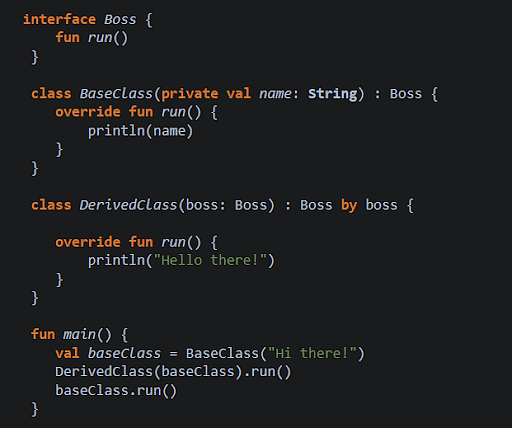
On this instance, should you upload the override a laugh run() println(“Hi there!”) to DerivedClass when run is named, this system will print Hi there! As an alternative of Hello there!.
Discussed beneath is the output:

Belongings Delegation
Delegation method moving possession to another magnificence or serve as. You must reuse the similar code to initialize homes when it has already been declared somewhere else. Right here you’ll have a look at the strategies the Kotlin Library provides.
Lazy()
Lazy is a lambda serve as that accepts a belongings as a controversy and returns an example of Lazy<T>, the place <T> is largely the kind of the homes it’s using.
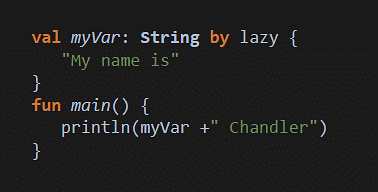
The Lazy serve as within the code above receives the variable myVar, assigns a price to it, after which returns that worth to the principle serve as.
Depicted beneath is the output.

Delegates.observables()
Observable() initializes the item with two arguments and returns the similar to the referred to as way.
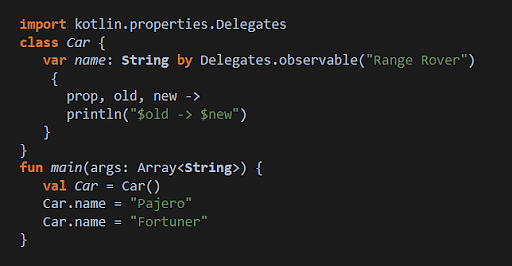
Right here, within the instance, the preliminary worth of the valuables is the primary argument. The callback serve as that can print oldName and newName is the second one argument. This will probably be referred to as while you regulate the worth of the required belongings.
Under is the output of the above instance.

Now, you’ll transfer directly to the following subject of Kotlin delegation.
Storing Houses in a Map
One not unusual use case is preserving belongings values on a map. This usually happens in programs like parsing JSON or wearing out different dynamic operations. Right here, the map example itself can function the delegate for a designated belongings.
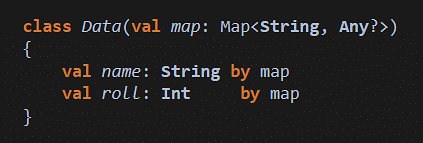
As you’ll see beneath, the constructor is taking the map.
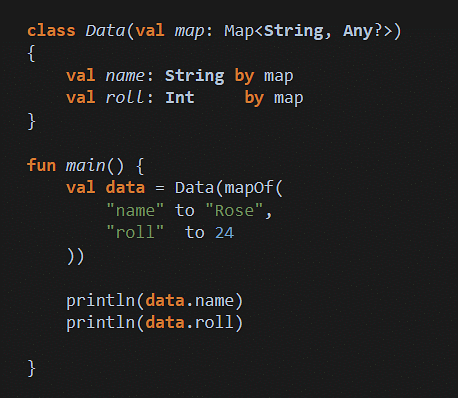
Delegated homes use string keys related to the names of homes to get values from this map. Under is the output.
Conclusion
On this educational on Delegation in Kotlin, you understood how delegation works in Kotlin and the sorts of delegation in Kotlin. You additionally realized concerning the Belongings Delegation Lazy() and Delegates. observables() serve as. Moreover, you realized about storing homes in a map and a lot more intimately with the assistance of examples.
In case you are having a look to construct a tool building profession, you’ll test the Complete Stack Developer – MERN Stack via Simplilearn. It may well be the most suitable option for aiding you in advancing your career.
Do you have got any questions concerning the Kotlin delegation educational? For those who do, you’ll come with them within the feedback segment beneath. Your questions will probably be addressed via us on the earliest.
supply: www.simplilearn.com

